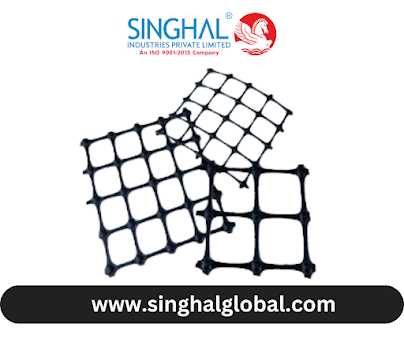Choose HDPE Bags for Superior Strength and Environmental Benefits: The Best Packaging Solution
Packaging plays a pivotal role in the logistics and supply chain industries, ensuring products are protected, stored efficiently, and transported safely. Among the myriad of packaging materials available, High-Density Polyethylene (HDPE) bags have emerged as a superior choice due to their strength, durability, and environmental benefits. As industries increasingly prioritize sustainability alongside performance, HDPE bags have become a go-to solution. This article delves into the advantages of HDPE bags, their environmental impact, and the leading regions known for their HDPE bags manufacturers.
Strength and Durability of HDPE Bags
HDPE bags are renowned for their high tensile strength and durability. These characteristics make them ideal for packaging a wide range of products, from industrial materials to consumer goods. HDPE, a thermoplastic polymer made from petroleum, offers a higher density compared to other polyethylene materials, resulting in robust and puncture-resistant bags.
The strength of HDPE bags ensures they can withstand heavy loads and rough handling during transportation, reducing the risk of product damage. This reliability is crucial for industries that require secure packaging solutions to maintain product integrity and minimize losses. Additionally, the durability of HDPE bags extends their lifecycle, making them a cost-effective option for businesses looking to optimize their packaging investments.
Environmental Benefits of HDPE Bags
One of the significant advantages of HDPE bags is their positive environmental impact. As the global community becomes more environmentally conscious, the demand for sustainable packaging solutions has surged. HDPE bags address this demand through several key environmental benefits:
Recyclability: HDPE bags are fully recyclable, contributing to the reduction of plastic waste. Recycling HDPE involves reprocessing the material into new products, which decreases the need for virgin plastic production and conserves natural resources. Many recycling facilities across the globe accept HDPE products, making it easier for businesses and consumers to recycle their HDPE bags responsibly.
Reduced Carbon Footprint: The production of these bags requires little amount of energy compared to other types of plastic bags. This lower energy consumption translates to a reduced carbon footprint, making HDPE bags a more environmentally friendly choice. Furthermore, advancements in manufacturing processes continue to enhance the efficiency of HDPE production, further minimizing its environmental impact.
Longevity and Reusability: HDPE bags' durability allows them to be reused multiple times before disposal. Reusability significantly decreases the number of bags needed over time, leading to less plastic waste generation. Businesses that adopt reusable HDPE bags not only reduce their environmental footprint but also promote a culture of sustainability among their stakeholders.
Leading Regions for HDPE Bags Manufacturing
India is home to several regions known for their expertise in HDPE bags manufacturing. Among these, Delhi, Gujarat, and Hyderabad stand out as key players in the production and supply of high-quality HDPE bags.
Delhi, the capital city of India, is a prominent hub for HDPE bags manufacturers. The city's strategic location, coupled with its advanced infrastructure, makes it an ideal center for manufacturing and distribution. HDPE bags manufacturers in Delhi are known for producing a wide range of HDPE bags, catering to various industries such as agriculture, retail, and logistics. The presence of well-established supply chains and access to raw materials further enhances Delhi's reputation as a leading region for HDPE bags production.
Gujarat, located in western India, is another significant region for HDPE bags manufacturing. The state's industrial prowess and robust petrochemical industry contribute to its prominence in the production of HDPE products. HDPE bags manufacturers in Gujarat leverage state-of-the-art technology and innovative production techniques to create high-quality HDPE bags. Additionally, Gujarat's ports and transportation networks facilitate the efficient export of HDPE bags to international markets, establishing the state as a key player in the global packaging industry.
Hyderabad, the capital of Telangana, has emerged as a notable region for HDPE bags manufacturing. The city's dynamic industrial landscape and supportive government policies have attracted numerous manufacturers to set up production facilities. HDPE bags manufacturers in Hyderabad are known for their commitment to quality and sustainability. By incorporating eco-friendly practices and adhering to international standards, these manufacturers ensure that their products meet the demands of both domestic and international markets.
Conclusion
HDPE bags have proven to be an exceptional packaging solution, combining superior strength with significant environmental benefits. Their recyclability, reduced carbon footprint, and durability make them an ideal choice for businesses seeking sustainable packaging options. With leading regions like Delhi, Gujarat, and Hyderabad at the forefront of HDPE bags manufacturing, the availability of high-quality and customizable HDPE bags continues to grow, catering to diverse industry needs. As the global focus on sustainability intensifies, HDPE bags stand out as a packaging solution that aligns with both performance and environmental objectives.
Frequently Asked Questions (FAQs)
What are HDPE bags used for?
HDPE bags are used for a wide range of applications, including packaging food products, agricultural produce, industrial materials, and retail goods. Their strength and durability make them suitable for carrying heavy loads and protecting items during transportation.
Are HDPE bags environmentally friendly?
Yes, HDPE bags are environmentally friendly due to their recyclability and lower carbon footprint. They can be recycled into new products, reducing the need for virgin plastic production and conserving resources. Additionally, their durability allows for multiple uses, decreasing overall plastic waste.
How are HDPE bags recycled?
HDPE bags can be recycled by collecting, cleaning, and reprocessing them into new plastic products. Many recycling facilities accept HDPE materials, making it easier for consumers and businesses to participate in recycling programs.
.png)

.png)
Comments
Post a Comment